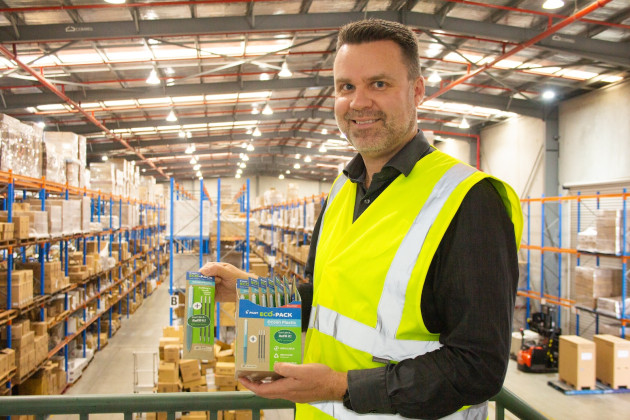Pilot Pen Australia has released the preliminary results of its national refilling survey and trial of an Eco Pack of recycled pens, each in a paper pouch with three easy-to-grab refills.
The results from the Eco Pack trial reveal that 70 per cent of respondents say that sustainability is important at work, yet the majority (60 per cent) are not actively refilling their office supplies, leaving over one third (39 per cent) doing the right thing.
“Clearly, despite good intentions, there is a gap between ‘knowing’ and ‘doing’ when it comes to refilling,” said Jarrad Murray, head of marketing at Pilot Pen Australia.

One Queensland government department surveyed 56 of its employees as part of the trial and said the results would help shape their office equipment purchasing and usage habits. They reported that coffee cups, printer cartridges and ink supplies are the most popular items being refilled.
Interestingly, while the vast majority (80.4 per cent) said they are aware that pens and markers can be refilled, while 67.9 per cent said they were not currently refilling them, mostly due to forgetting or losing the refills.
“With the average office worker using 15 pens and markers per year, in a company of 100 employees, that works out to be approximately 1500 pens and markers that are going straight into landfill, which is obviously not desirable, not to mention the additional cost to replace pens. If we can refill water and coffee cups, then why not pens,” questioned Murray.
To help businesses manage their sustainability footprint, Pilot Pen has partnered with leading sustainability consulting group, Lifecycles Australia to launch an innovative online calculator that can accurately predict the cost and carbon footprint savings of refilling plastic pens.
“Our business impact calculator shows that by refilling just one pen, you can reduce its carbon emissions by 40 per cent and plastic use by 31 per cent – the equivalent of 49km or 30 plastic bottles, not to mention the cost savings,” Murray said.
“Multiply this by 100 employees and this increases to the equivalent of over 3000 plastic bottles.
“Imagine the impact of this on the estimated 2.6 million tonnes of plastic waste that gets thrown into landfill each year, if every business, however small, starts to refill their pens, especially given the move towards mandatory sustainability reporting this year.”
According to the government’s National Waste Report 2022, business and commercial waste contributed to around half of all plastic waste in Australia last year and just 13 per cent of this was reused, recycled or used for energy recovery – the lowest recovery rate of all types of waste.
“Refilling has less impact on the environment as it extends a product’s lifespan by maximising its utility and keeping it out of landfill," said Timothy Grant, director of Lifecycles Australia.
The Pilot Pen business impact calculator was developed to assist consumers in understanding how to avoid environmental burdens through these small, yet impactful day-to-day decisions.
To participate in the Pilot Pen refilling survey and receive an Eco Pack of pens and refills to trial, click here to register.






